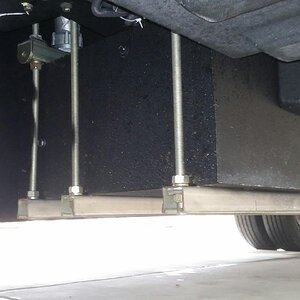Ford probably hit a home run with this model. The whole front hood area is actually a trunk since there is no engine up there. When you think about it probably more than half the F150's out there are being driven by younger family guys who really don't need a truck but just like having one, so towing range and other issues concerning an RVer probably won't hold sales back on these.
The problem for the future if electric vehicles start flooding the market is funding for our roadways. Currently gas and diesel taxes go toward building and maintaining roadways. What happens when we get half of Americans driving around in electric vehicles and not buying fuel anymore?











